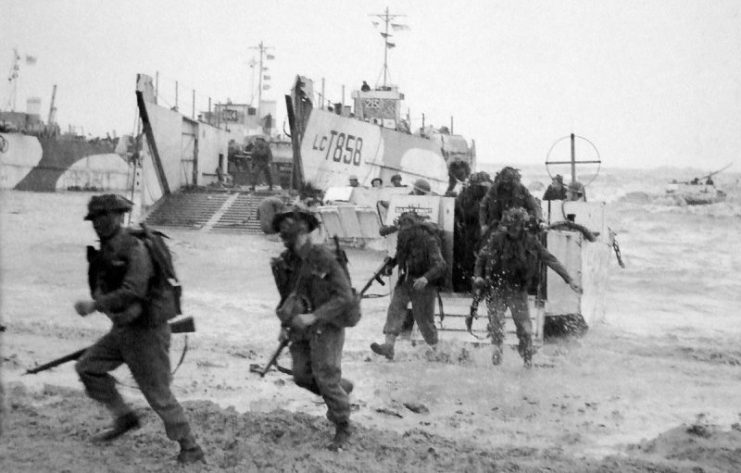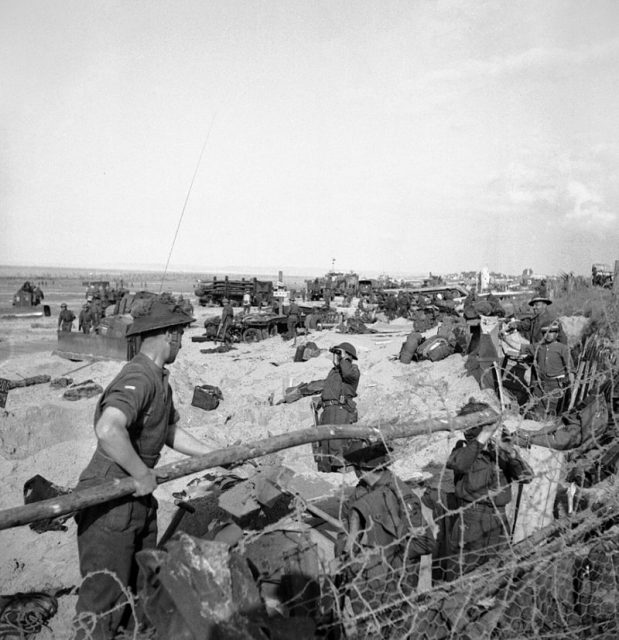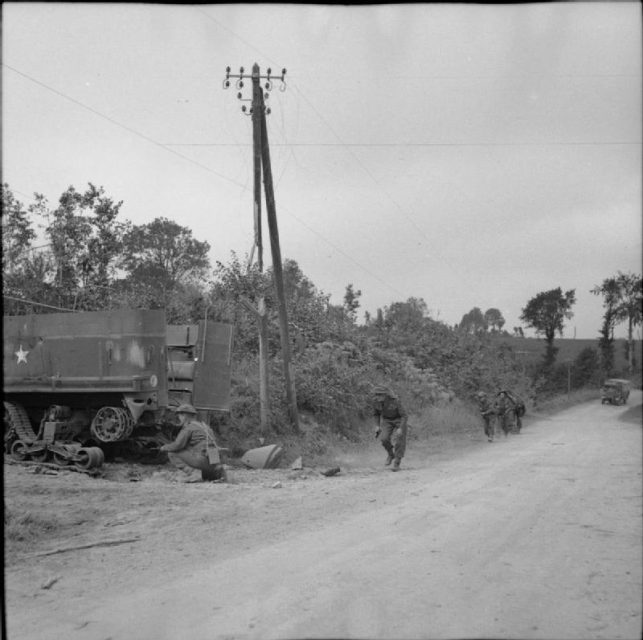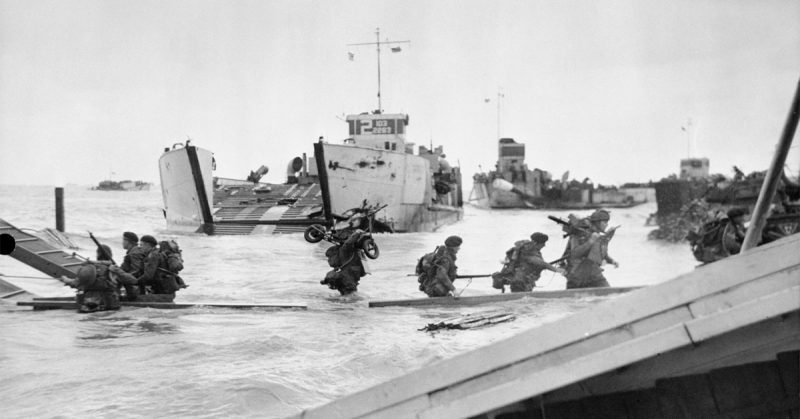Roy Cockburn was 18 when he left school and joined the Green Howards. The Green Howards were a line infantry regiment in the King’s Division of the British Army formed in 1688.
The year was 1941 and Cockburn left his medical studies at Nottingham University (against his parents’ wishes) in order to serve his country in World War II.
After completing basic training, he was recommended for officer training. He graduated from the Royal Military Academy Sandhurst in October 1943 as a Second Lieutenant at the age of 20.
He then joined the 43rd (Wessex) Reconnaissance Regiment and began training for the Normandy landings that were to take place in June 1944.

Twelve days after the D-Day landings, his squadron boarded the MV Derrycunihy in the West India docks in London. They sailed to Sword Beach which they reached two days later. They couldn’t unload due to the high seas and enemy artillery, so they sailed to Juno Beach. Cockburn was standing on the deck when a mine exploded beneath the ship, breaking it in two.
The rear of the ship sank quickly, taking with it scores of men trapped in their sleeping quarters. Even worse, an ammunition truck caught fire, spilling flaming oil into the waters. Cockburn was fortunately on the front part of the ship. He has never forgotten looking down into the water and seeing all of the bodies floating there.

Getting to the shore, they treated the wounded and found that they had lost 183 men from the 43rd and 25 men from the ship’s crew. The sinking of the Derrycunihy would be the single largest loss of life in the waters off the Normandy beaches.
The next day, Cockburn helped the survivors salvage what equipment and vehicles they could from the wreckage and then the squad began their recon patrols.
Thanks to the excellent training they had received, they were able to carry out their patrols effectively. They neutralized smaller pockets of resistance that they encountered and reported larger defenses to HQ so that proper action could be taken.

Twice Cockburn led teams of 24 men on reconnaissance missions behind enemy lines. Once they found the location and determined the number of troops, they would either engage the enemy or report the location to headquarters.
On the second of those missions, the soldier beside Cockburn was shot in the head. The enemy shot up flares and began shelling the exposed squad. Cockburn managed to crawl 200 yards under continual enemy fire and drag the wounded man with him so that he could be evacuated.
For his bravery, he received the Military Cross. The citation explains that it was awarded for Cockburn’s leadership, his determination and for the way he disregarded his own life and thus inspired the men he was commanding.

Months later, the wounded soldier wrote to Cockburn to thank him for saving his life. Cockburn has never heard from him since.
According to Cockburn, he was only concerned with accomplishing the mission, getting the information that headquarters needed, and returning his wounded soldier to safety. He never thought about the danger.
After the war, Cockburn remained in Germany. He witnessed firsthand the conditions at the Bergen-Belsen concentration camp.
He was eventually promoted to Captain and assigned to a post in India. He returned to the UK in 1947 and served in the War Office until he retired from the army in 1950.
More recently, the French government has awarded Cockburn the Légion d’honneur for his participation in the Normandy invasions and his assistance in liberating France from German control.
